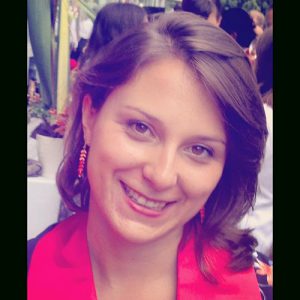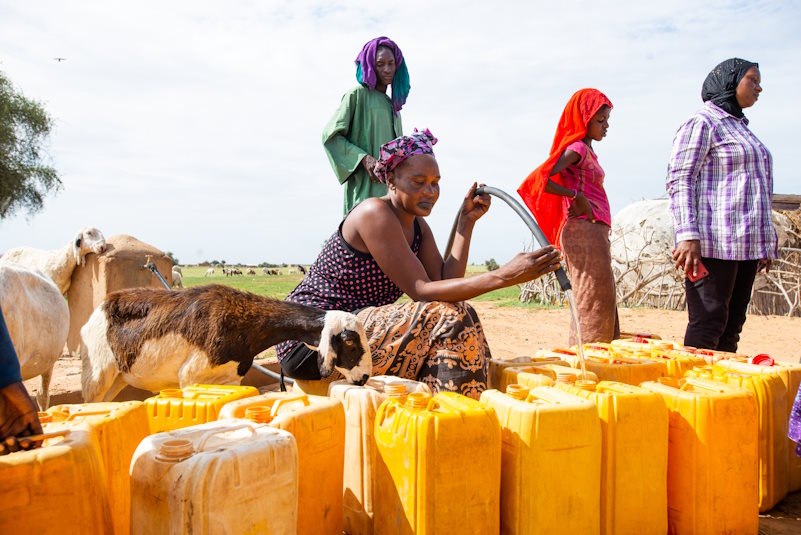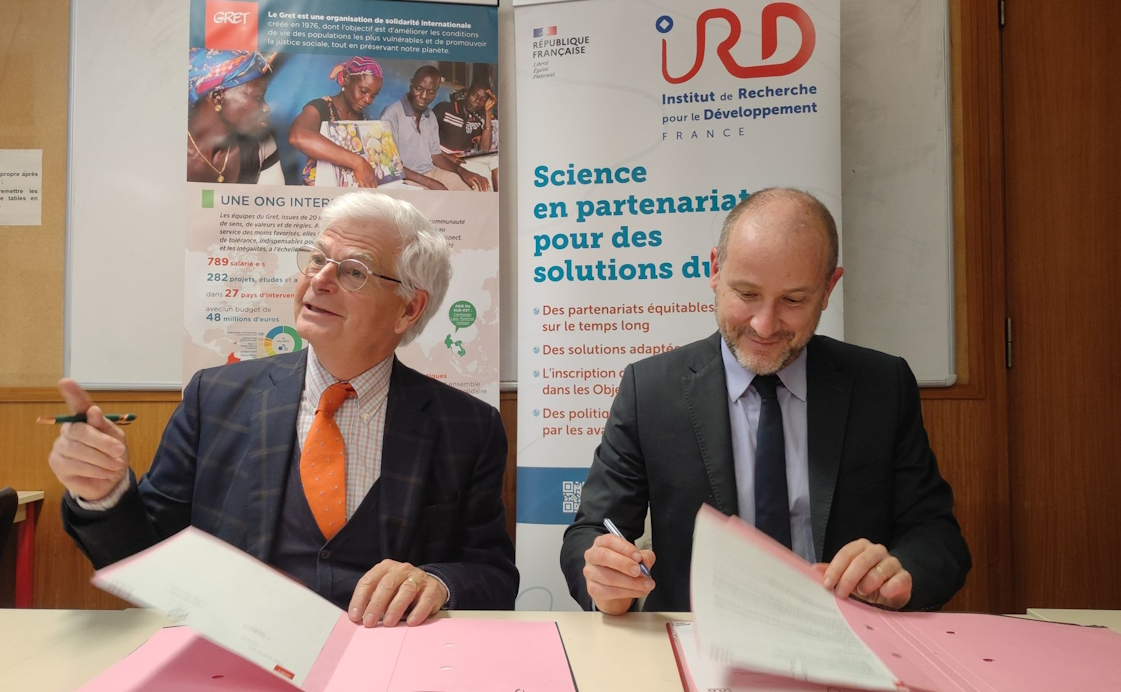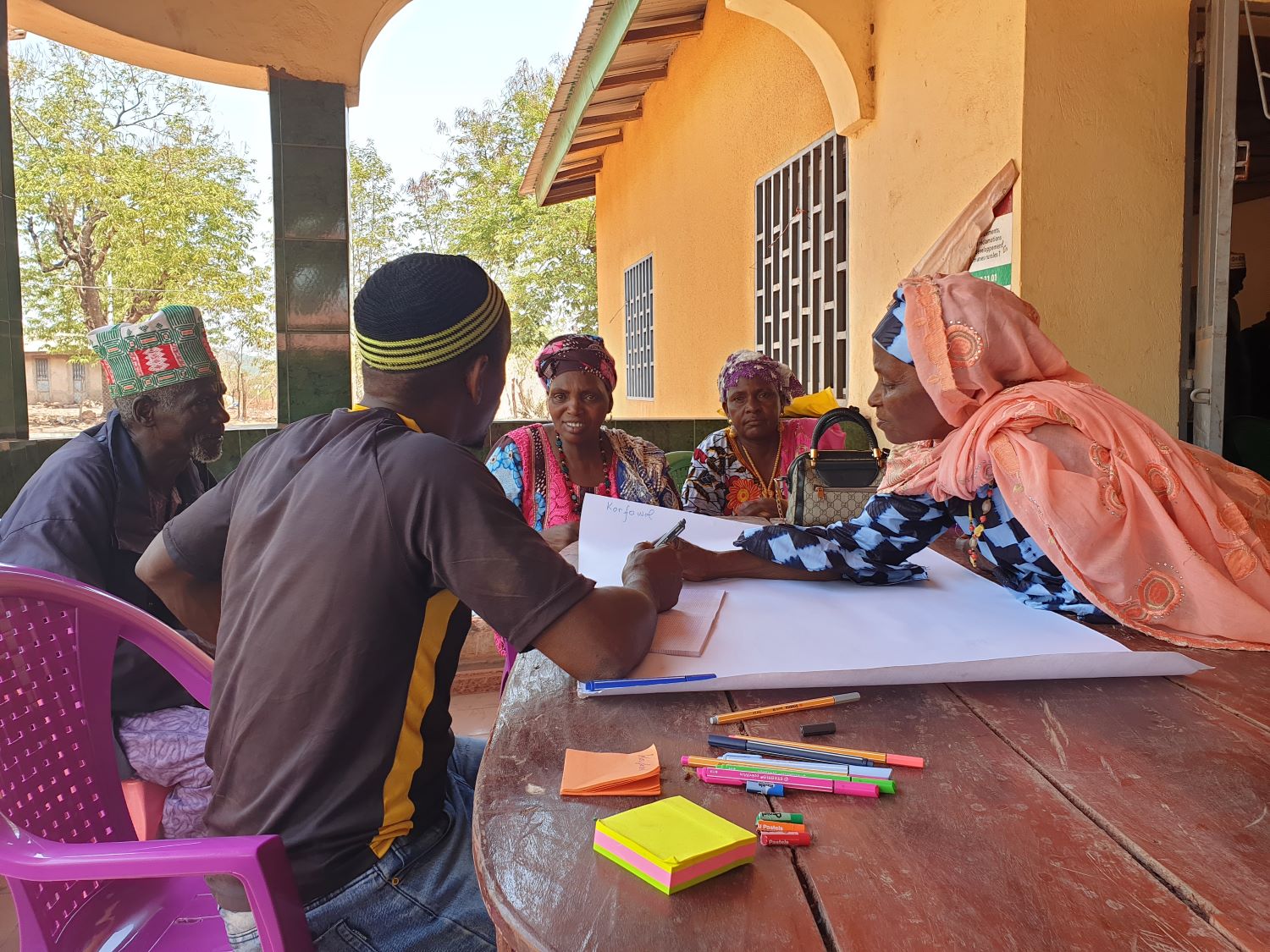Created in 2018 by the various organisations present on the Jardin d’agronomie tropicale campus in Paris, the Sustainable development hub is a multi-stakeholder centre for research, international sustainable development cooperation and ecological transition. The structure recently welcomed Manon Garin-Marguerite, its new operational director, with a view to developing its advocacy, networking and events management activities for a collective committed to protecting the environment.
Can you tell us about your background and how it links in with your new missions as Operational director of the Sustainable development hub?
Up to now I had been working in the area of ecological transition and raising awareness among citizens on these issues by international civil society organisations. Having graduated in 2015 from the School of International Affairs at Sciences Po Paris, it was from the point of view of human rights protection and international penal law that I first became interested in environmental issues. I had the opportunity to work on the definition of ecocide, now being widely discussed, but at the time it was a newly emerging subject in France. It was only a short step from protection of the most vulnerable to that of their environment. I joined the inter-ministerial team in charge of organising COP21, more specifically the Climate Generations Spaces, an unprecedented forum where international civil society organisations and the general public could meet. After that I coordinated WWF France‘s Programmes management: a rewarding and instructive experience working with high level experts. Most recently, I was working with the French Ministry of Ecological Transition, designing the Nature Generations Spaces for IUCN World Conservation Congress. However, the Covid-19 pandemic disrupted the organisation of this event, initially scheduled for June 2020 in Marseille. It is now planned for next September, with more than 200 French civil society organisations that will meet in the Nature Generations Spaces to provide citizens with keys to contribute to conservation of biodiversity.
These experiences not only increased my enthusiasm for collective work, they also confirmed the value and capacity of the latter to further the search for global solutions. I also learned how to coordinate multiple international stakeholders and support their synergies around joint projects. I have a great belief in the potential of multi-disciplinary research, in the benefits of knowledge through experience and in expertise to invent sustainable models for the future. Having worked on organising temporary international events, I feel that durably establishing the Sustainable development hub in a location as steeped in history as the Jardin d’agronomie tropicale in Paris gives it a very specific dimension.
What role can the Sustainable development hub play for French stakeholders in the sector?
The Sustainable development hub is the only one of its kind, located at the Jardin d’agronomie tropicale in Paris. The association, created in 2018, brings together approximately twenty organisations reflecting the diversity of sustainable development stakeholders and ecological transitions underway in France and in international cooperation (research bodies, training organisations, universities, engineering consultants, NGOs, endowment funds, consultative collectives, social and solidarity businesses, etc.). Given the necessity to initiate new development trajectories, the Hib was set up with the objective of decompartmentalising different areas of expertise and research. The challenge is to share experiences underway here and elsewhere, discuss these and generate new forms of collaboration to go further and perhaps consolidate solutions identified. Support from Agence française de développement in 2020 enables us to structure the project and define priorities for the next four years.
Having arrived very recently, I am gradually discovering the extent the of the ambitious targets the hub members have set themselves and the specificity of the role they intend to play in the sustainable development sphere. The hub has the potential to become a place of reference in terms of expert and scientific knowledge on development models and changes in individual and collective practices. Thanks to its many long-standing connections with developing countries, it aims to generate exchange of innovative practices and detect inspiring know-how for all. It also wants to become a key interlocutor with public authorities on the The Sustainable development goals and international solidarity.
Lastly, the Hub’s ambition is linked to the background of the Jardin in which it is located, and the plots around it. The City of Paris, which owns these spaces, will shortly be conducting a phase of rehabilitation, creating greater access to these spaces for the general grand public. The Hub will be strengthened by this intention to become a place where people come together, facilitating better knowledge of sustainable development issues in France, Europe and international cooperation partner countries.
What are your priorities in the coming months?
I am taking up my mission with great humility, and in support of the members of the Hub who have been reflecting for several years on the construction of this collective project. My priority is therefore first and foremost to listen to them, understand the specificities and missions of each organisation and the valuable contributions they intend making.
Secondly I will propose tools to improve circulation of information, firstly between the members to facilitate the emergence of collaborations, and then externally to promote our projects. The objective is to help the members to be a hub inside and outside the campus, by building ties with new partners. The Hub will be even more pertinent if it is constructed with and supported by external energies.
In the immediate future, autumn 2021 will be a period of reopening and upscaling for the Hub, with numerous events already planned around European Sustainable Development Week (from 18 September to 8 October), the 4th edition of the student-led TroPikantes festival and the inauguration of the Tunisia Pavilion. The latter was recently renovated and will house a sustainable, eco-friendly restaurant and a resource centre facilitated by the Hub.






